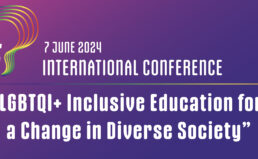On Wednesday, Committee on Education, Science and Culture (CESC) did not approve amendment which proposed public information which encourages homosexual, bisexual relations or polygamy to treat as having detrimental effect on minors.
This amendment proposed by member of the Conservative Party Gintaras Songaila was approved by the Seimas in the discussion of the draft of the Law, but as this amendment changed the draft essentially, it was returned to discuss it over to the Committee on Education, Science and Culture.
In the second discussion of the draft CESC did not approve this amendment, called as homophobic by critics, but approved prohibition of information which encourages any sexual relations.
This amendment goes further than in the version proposed by working group of the President Dalia Grybauskaite – it was suggested to prohibit information encouraging sexual relations between minors.
On Wednesday, for amendment suggested by G. Songaila voted 2 members of the CESC, 1 was against, 4 abstained.
At that time, amendment suggested by representative of the United Lithuania Polical Group Mantas Varaska which proposed that public information which encourages any sexual relations should be treated as having detrimental effect on minors, was approved by 7 members of the CESC voting for.
G. Songaila argued that this amendment is insufficient, because it applies only to sexual relations, and for minors, in his opinion, information, which encourages other then traditional relation between people of different sexes, and not only sexual, should be inaccessible.
Earlier than this, CESC in the discussion of the draft of the Law on the Protection of Minors against the Detrimental Effect of Public Information added to it prohibition to spread to the minors information, which encourages other than officially recognized family conception.
The President proposed the amendment on information which reviles family values to treat it as having detrimental effect on minors, and CESC supplemented it by adding to it information which encourages “other conception of marriage and family creation than in the Constitution and Civil Code”.
According to the Constitution, marriage is based on free agreement between a man and a woman, family is recognized as foundation of the society and state, but it doesn’t give the exact definition of what it should be. There is no family definition in the Civil Code either, but in the chapter on law which applies to legal family relations there are rights and obligations of spouses, children and parents stated. The Seimas has approved Family Conception, according to which only married couples are recognized as families.




